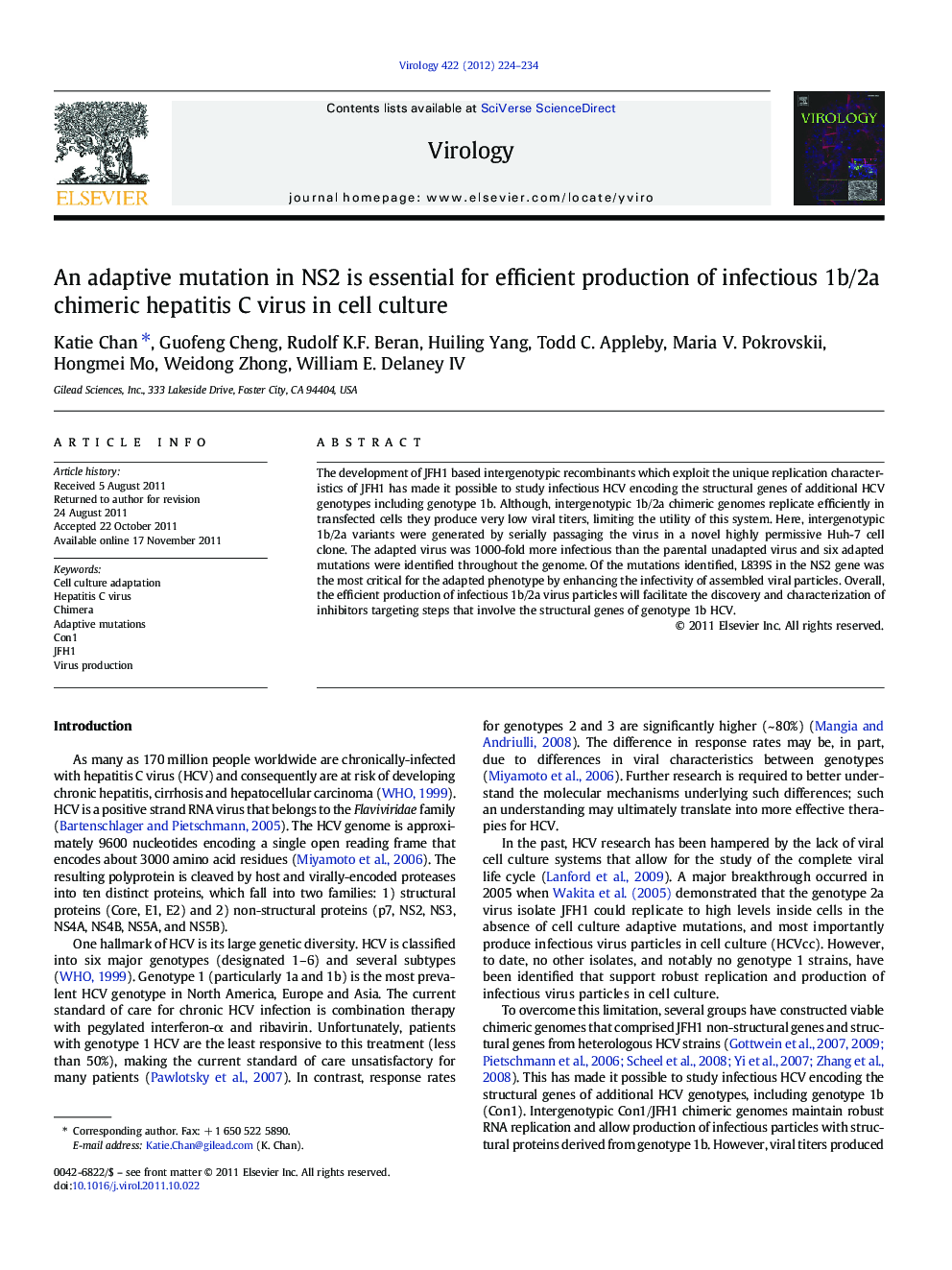| Article ID | Journal | Published Year | Pages | File Type |
|---|---|---|---|---|
| 6141241 | Virology | 2012 | 11 Pages |
Abstract
The development of JFH1 based intergenotypic recombinants which exploit the unique replication characteristics of JFH1 has made it possible to study infectious HCV encoding the structural genes of additional HCV genotypes including genotype 1b. Although, intergenotypic 1b/2a chimeric genomes replicate efficiently in transfected cells they produce very low viral titers, limiting the utility of this system. Here, intergenotypic 1b/2a variants were generated by serially passaging the virus in a novel highly permissive Huh-7 cell clone. The adapted virus was 1000-fold more infectious than the parental unadapted virus and six adapted mutations were identified throughout the genome. Of the mutations identified, L839S in the NS2 gene was the most critical for the adapted phenotype by enhancing the infectivity of assembled viral particles. Overall, the efficient production of infectious 1b/2a virus particles will facilitate the discovery and characterization of inhibitors targeting steps that involve the structural genes of genotype 1b HCV.
Related Topics
Life Sciences
Immunology and Microbiology
Virology
Authors
Katie Chan, Guofeng Cheng, Rudolf K.F. Beran, Huiling Yang, Todd C. Appleby, Maria V. Pokrovskii, Hongmei Mo, Weidong Zhong, William E. IV,
